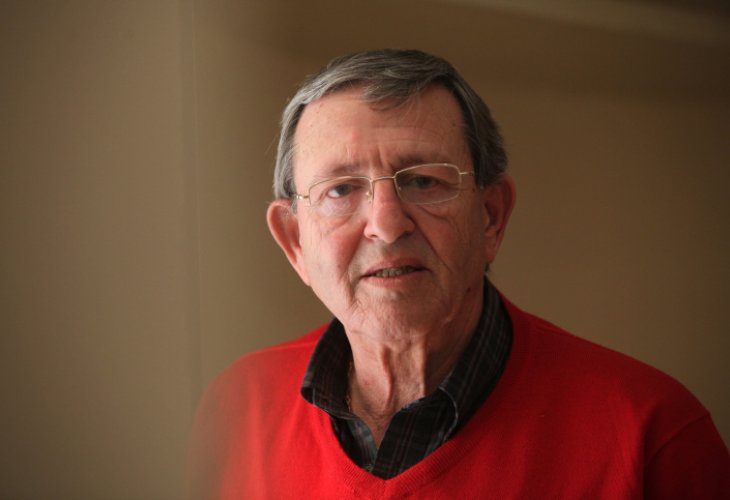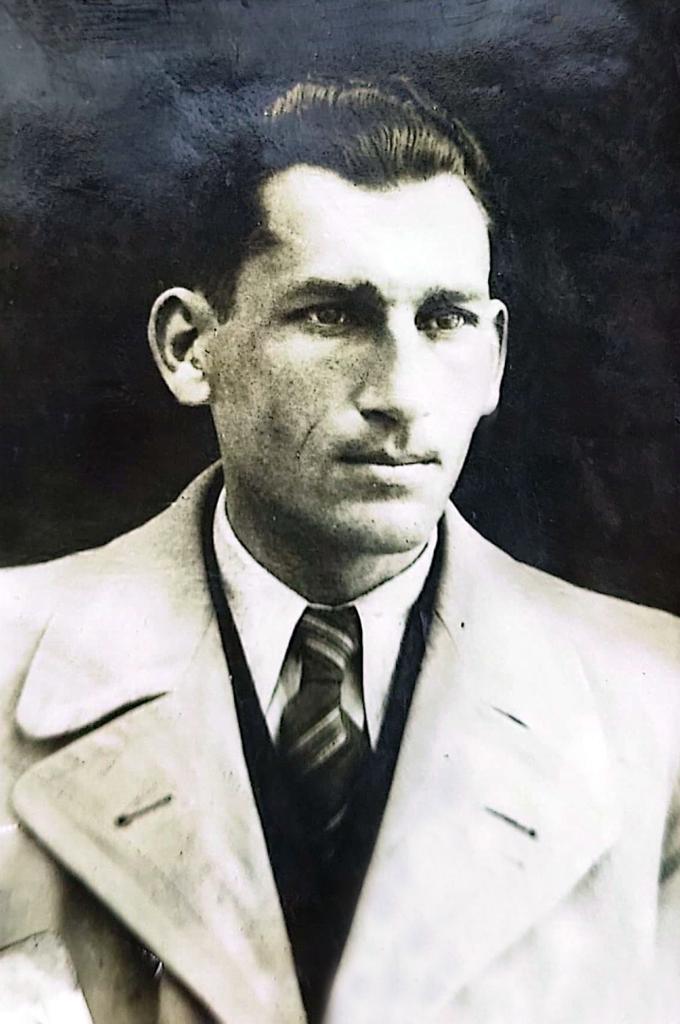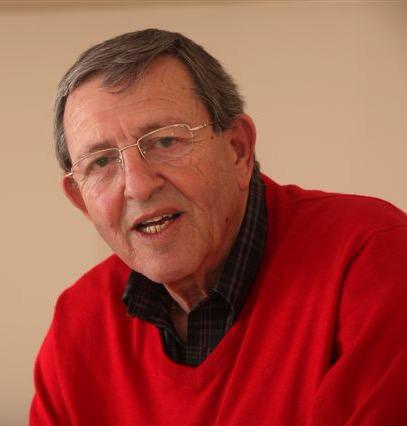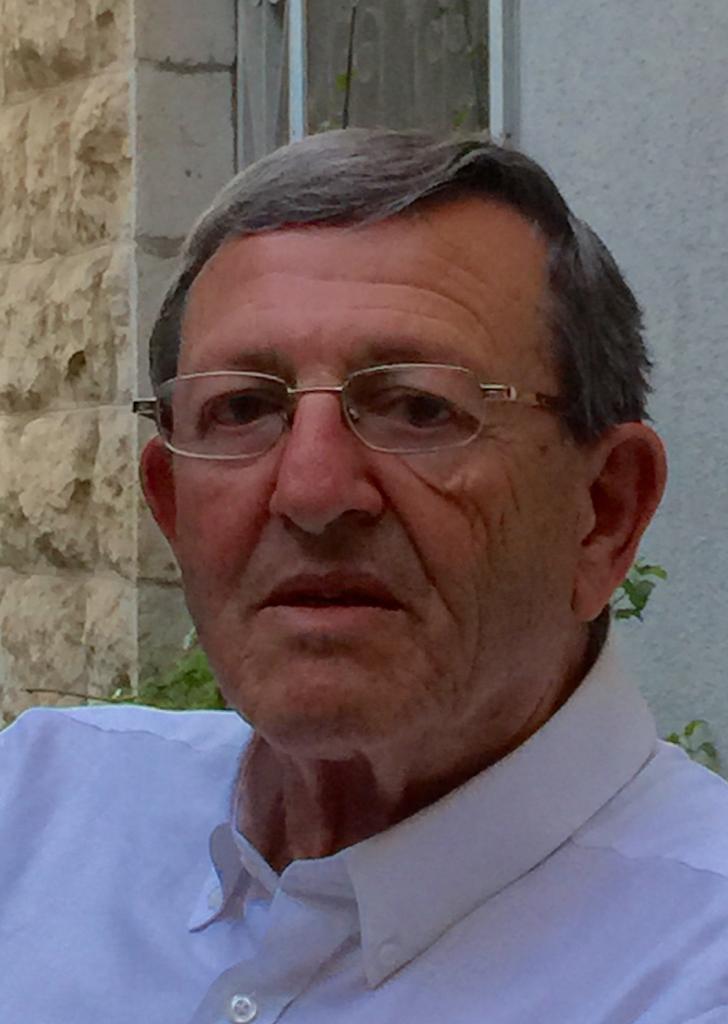Personal Stories
Legacy of a Leader: How Yair Stern Preserves the Memory of His Father, Founder of the Lehi
A gripping account of heroism, sacrifice, controversy, and the personal cost of growing up as the son of a legendary underground fighter
 Yair Stern (Photo: Flash 90)
Yair Stern (Photo: Flash 90)“My father was a terrorist,” says Yair Stern, now well into his senior years, without the slightest tremor in his voice. “Personally, I don’t connect to that definition, because in my eyes my father was a freedom fighter. But I don’t protest when people call him a terrorist,” he adds. “After all, he was the commander and founding leader of the Lehi underground, and he really did carry out acts of terror — though of course they were directed solely at specific British targets, never at children or innocent civilians.”
Stern was born in 1942, five months after the murder of his father, Avraham Stern, known by his underground name “Yair.” “My father was killed by a British soldier,” his son recounts. “It happened while my mother was pregnant with me, so I was literally born into orphanhood and never had the chance to meet him.”
A Discovery at Age Five and a Half
What is it like for a child to grow up without a father? Stern explains that he first lived with his mother in Ramat Gan, in his grandparents’ home, under very difficult conditions. “Because of his underground activities, my father didn’t work and didn’t leave a penny behind,” he says. “My mother was a musician and tried to find work in music but couldn’t, so we literally went hungry. Eventually a family acquaintance helped her find a job playing music in two kindergartens, and that’s how we survived.”
Four years after her husband’s death, Stern’s mother remarried and started a new family. Yair gained a little sister. “All in all, I had a good childhood,” he recalls. “I had good friends, loving grandparents, and even a family — despite what happened.”
He first learned that he had no father at age five and a half, on November 29, 1947, the day of the UN vote establishing the State of Israel.
“People poured into the streets dancing and celebrating, and then my mother called me over and told me that although we had gained a state, my father had been killed in the great war for it. That was the first time I understood I had no father. I still remember the trauma, how deeply it affected me. For weeks I cried nonstop. And the truth is, the sense of loss has never left. My father is with me in my thoughts every day — some days I feel his absence more strongly, some days less. But it never goes away.”
A bright child, Stern always sought out stories about his father, asking everyone who would answer. “My mother, my grandparents, my uncles. After the establishment of the state, members of the Lehi underground no longer had to hide, and they would visit my mother — and me, telling stories about my father. I absorbed every word. Over the years, many articles and publications came out about him, and I read everything hungrily. Even now, I still discover new details about his life, his leadership, and his dedication to the Jewish people. I’m still trying to fully piece together who he was, and honestly, I don’t think I’ve reached the end.”
 Avraham ('Yair') Stern in the last months of his life
Avraham ('Yair') Stern in the last months of his lifeWhat can you tell us about your father?
“My father was a tremendous fighter. He feared neither the enemy nor death. He did what he believed was right and knew the risks. He used to say, ‘If I fall, others will come in my place and continue the struggle.’ He was also a great poet, writing with deep faith and powerful nationalist vision.
“In one poem he wrote: ‘If we fall in the streets / quietly at night they will bury us in homes / and in our place thousands more will arise / to fight and conquer forever.’
“And that is exactly what happened. When my father and his comrades fell, others rose in their stead. I truly believe he was an extraordinary leader. One may agree or disagree with his ideology, but you cannot deny who he was.”
 Yair Stern
Yair SternDo you think you resemble him?
“I can’t answer that. I never met him or heard his voice. But my mother says I have traits that remind her of him. I admire my father, but I never tried to become him. I understood that his shoes were far too big. I chose an entirely different career of writing and journalism. Later I studied communications in Philadelphia, returned to Israel, married, and we lived most of our lives in Jerusalem.”
Do people recognize you as ‘the son of…’?
“People have recognized me for as long as I can remember, especially since I carry his name — Yair Stern. As a child I already felt how much responsibility came with that name. I felt I had to behave respectfully and justify the association. It influenced me deeply. Later I even wrote a book about him, though I still feel I didn’t fully capture him.”
For the past twenty years Stern has served as chairman of the Lehi Heritage Association, dedicated to commemorating the members of the underground, most of whom are no longer alive. “Our mission is to pass the heritage forward,” he explains, “to tell the story of those people so that everyone knows who they were.”

Israel’s Ongoing Conflicts
“Even today, more than 80 years after my father’s death, our wars with surrounding enemies continue. I don’t want to sound pessimistic, but as things look now, the conflict with the Palestinians won’t end in our generation — or in the generations of our children and grandchildren.
“It will continue as it has until now: waves of escalation and quiet. My father said nearly 90 years ago that ‘The Land of Israel will exist like a green island in the middle of an Arab desert,’ and that is exactly what we see today.
“There isn’t much we can do to end the external conflict — the Arab terror will continue. But at the very least, we can try to end the wars among ourselves. That, at least, has a far greater chance.”

